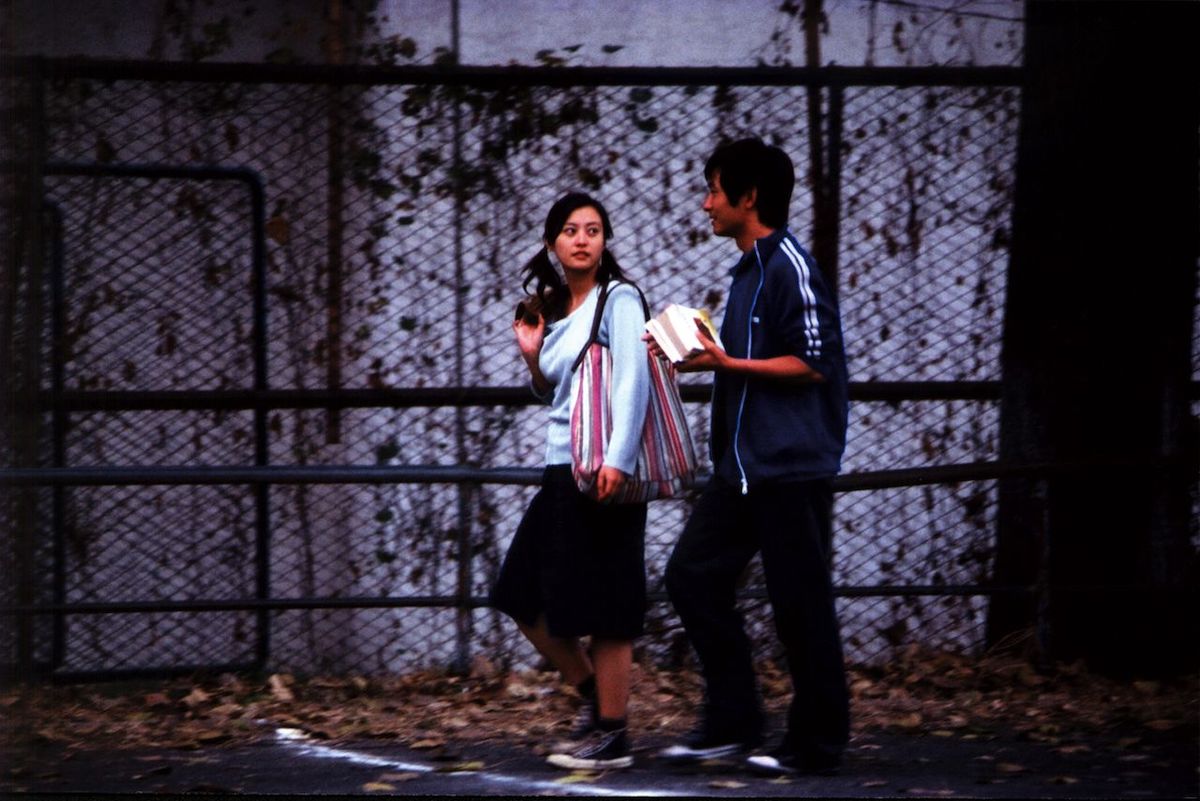
There is a lot that can be said against "Summer Palace" the latest film by director Lou Ye, which has been banned in China, because of its depiction of the Tiananmen Square protests of 1989. The film is too long, there are too many tedious sex scenes, which go on for too long and halfway through the film it loses focus. But still, despite its flaws, I was moved. This probably says more about me than about the film and as I walked home I wondered just exactly why I was moved. However, as Timothy Wilson writes in Strangers to Ourselves self-analysis usually doesn’t lead anywhere and it’s best to just take the feelings for what they are. With that I ate an apple and went to bed.
"Summer Palace" tells the story of Yu Hong a girl from a village on the Chinese Korean border who is admitted to Peking University. During her first year at university she discovers her sexuality in multiple relationships with both men and women. At the same time other students test the boundaries of the Chinese regime, which eventually escalates into the protests at the Tiananmen Square in 1989 and the subsequent government crackdown.
The political turmoil is reflected in Yu Hong’s turbulent emotional life, which we learn of through excerpts from her diary. She is torn apart by the violence of her own feelings. She breaks up with Zhou Wei, the man she is madly in love with, but can’t let go of him until she finds him in bed with one of her friends. Yu Hong quits her studies and moves back to her village while Zhou Wei is deported to a military camp for his role in the protests.
The film doesn’t stop here, but trails Zhou Wei as he moves to Berlin and Yu Long as she moves from city to city and from lover to lover. Eventually Zhou Wei returns to China where, by accident - and what an accident this is in a country as big as China -, he meets again with Yu Long.
The film’s end, and indeed its structure, is almost identical to "Gegen die Wand" (2004) by Fatih Akin, except that in "Gegen die Wand" it is Sibel who doesn’t show up whereas in "Summer Palace" it is Zhou Wei who drives off. In both films an Event separates the two lovers and in both films the woman eventually marries another man and becomes a mother. Also, in both films it is the man who arranges to meet the woman, after many years of being separated, and it is the man who is left alone.
It is easy to forget that both Yu Long and Sibel are the product of a masculine fantasy. They represent the ideal Woman: beautiful and eager to have sex. But the ideal Woman does not exist and the relationship with man is therefore by definition impossible. If the relationship would be realized Woman would cease to be the object of desire.
It is no accident that in both "Gegen die Wand" and "Summer Palace" we don't get to know the men the women eventually marry, making them by definition less interesting than the main characters. In "Summer Palace" Yu Long asks one of the men longing for her if he has a fire to light her cigarette. He offers her his lighter but it doesn’t work. Yu Long looks at him and sighs. “I see, you have a lighter, but you don’t have fire”. We, as an audience, instantly understand this remark, knowing the fire that burns inside Yu Long and that she found in Zhou Wei.
Of course, this Lacanian reading only goes so far. One could also say that the characters in both films are unable to cherish the past. They have known happiness and love, but they want it to last forever, they want eternity, but only gods are eternal. The only form of infinity that man has access to is through the intensity of feelings and the lived moment.
This does not yet answer the question why I was moved by the ending of both "Summer Palace" and "Gegen die Wand". But I’m not a psychoanalyst and besides, I didn’t say I was going to answer that question.